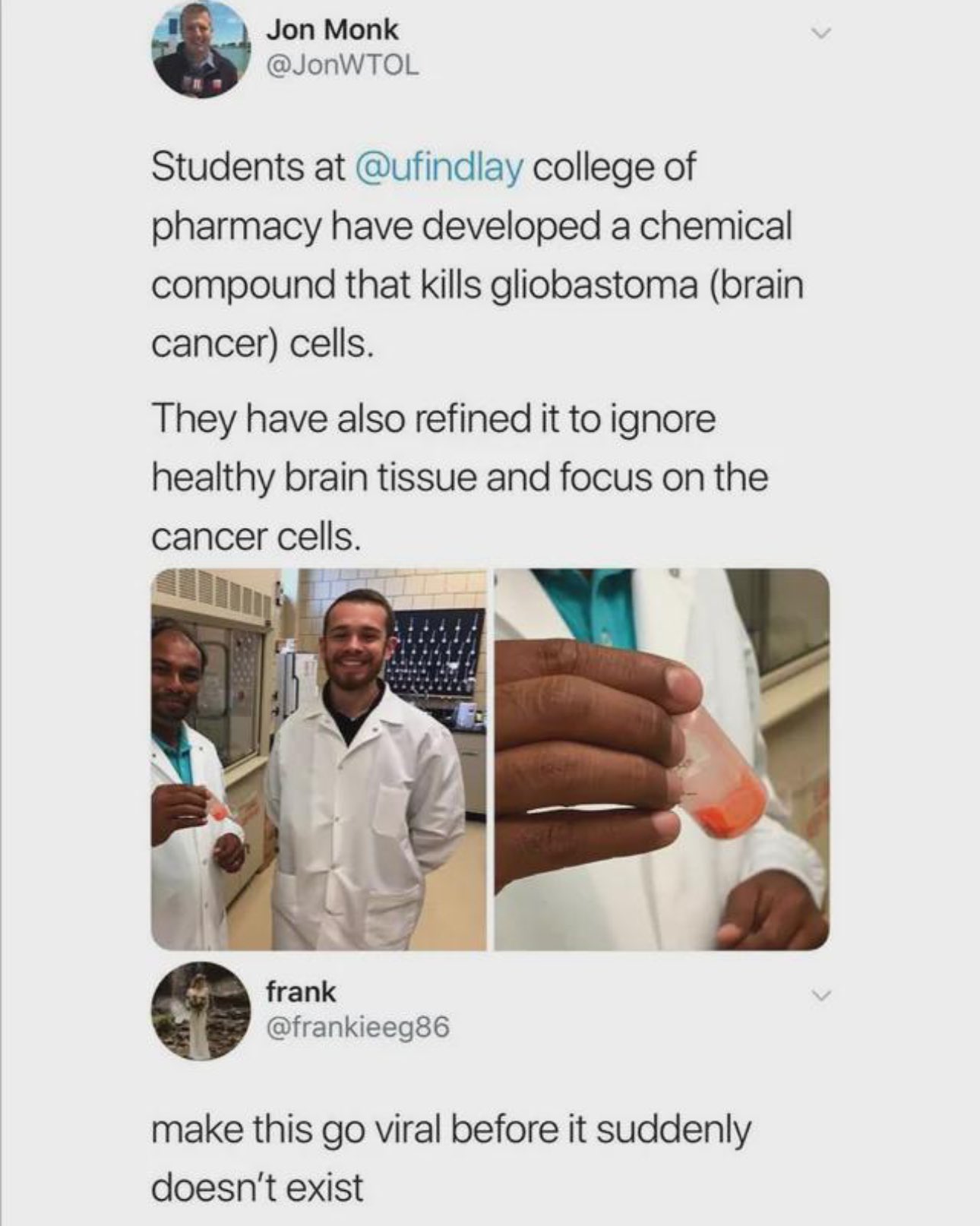this post was submitted on 23 Jan 2024
462 points (86.8% liked)
Microblog Memes
8960 readers
1377 users here now
A place to share screenshots of Microblog posts, whether from Mastodon, tumblr, ~~Twitter~~ X, KBin, Threads or elsewhere.
Created as an evolution of White People Twitter and other tweet-capture subreddits.
Rules:
- Please put at least one word relevant to the post in the post title.
- Be nice.
- No advertising, brand promotion or guerilla marketing.
- Posters are encouraged to link to the toot or tweet etc in the description of posts.
Related communities:
founded 2 years ago
MODERATORS
you are viewing a single comment's thread
view the rest of the comments
view the rest of the comments

The focus of research should be on telomere therapy, because that's the most likely area to develop an all-cure. Yet it receives a fraction of the budget other therapies receive. Most telomere research is funded by grants from charities or public funds. I couldn't find any research funded by private bodies (which isn't to say there is none).
Look, if people could get a jab that vaccinated them against cancer, the companies selling the current myriad treatments, often lifelong, would stand to lose a huge chunk of their income. I don't think that's in any way magical thinking. The next premise is that the divvying up of R&D funding will therefore never be in favour of an easy, outright cure, because the people who make those decisions aren't doctors or cancer patients, and their role is purely to increase the value of the company, over the short and long term. Yes, the first company to do it would destroy the profits of any competitors, but it would reduce its own in the process.
So we have: 1: a one-time vaccination or other easy therapy to prevent or cure cancer wouldn't be in the interests of any company making lots of money off a vast treatment range, and
2: the people who allocate funding aren't going to research the treatment in 1) out of the goodness of their hearts. The outcome is a much slower general progression towards a cancer cure than is ideal. It does amount to a conspiracy, but only because of the pressures of the free market. It's the same kind of mass stupidity the human race displays when it comes to climate change.
I'm honestly interested to see if you refute either of the two points above, or their link/outcome. I genuinely would love to be wrong about this.
Nope, while telomers and general aging are important. It has nothing or little to do with most diseases. You say the people making decision are not cancer patients. That is not really true. 20 % of the population die of cancer. 1/5 of the pharma management dies of cancer, 1/5 of the spouses of these people die of cancer. 1/5 of the children of these people die of cancer. It is in the direct egoistic interest of these people to find cancer cures.
Ok, so if the people making the decision were all patients or the relatives of patients, and they were also just regular people with normal working class jobs, do you think the amount of money put into research would increase or decrease?
I don't know, many societies don't want to discuss how much worth is one additional year of life for example. I also don't know if it would improve output if research and development and manufacturing of drugs would be completely state run. But the I think the ruling elites are almost all patients in one form or the other. Have you ever seen a completely healthy elderly politician? If it only taking pills against high blood pressure, or high cholesterol. Or maybe they have a new hip or knee joint.